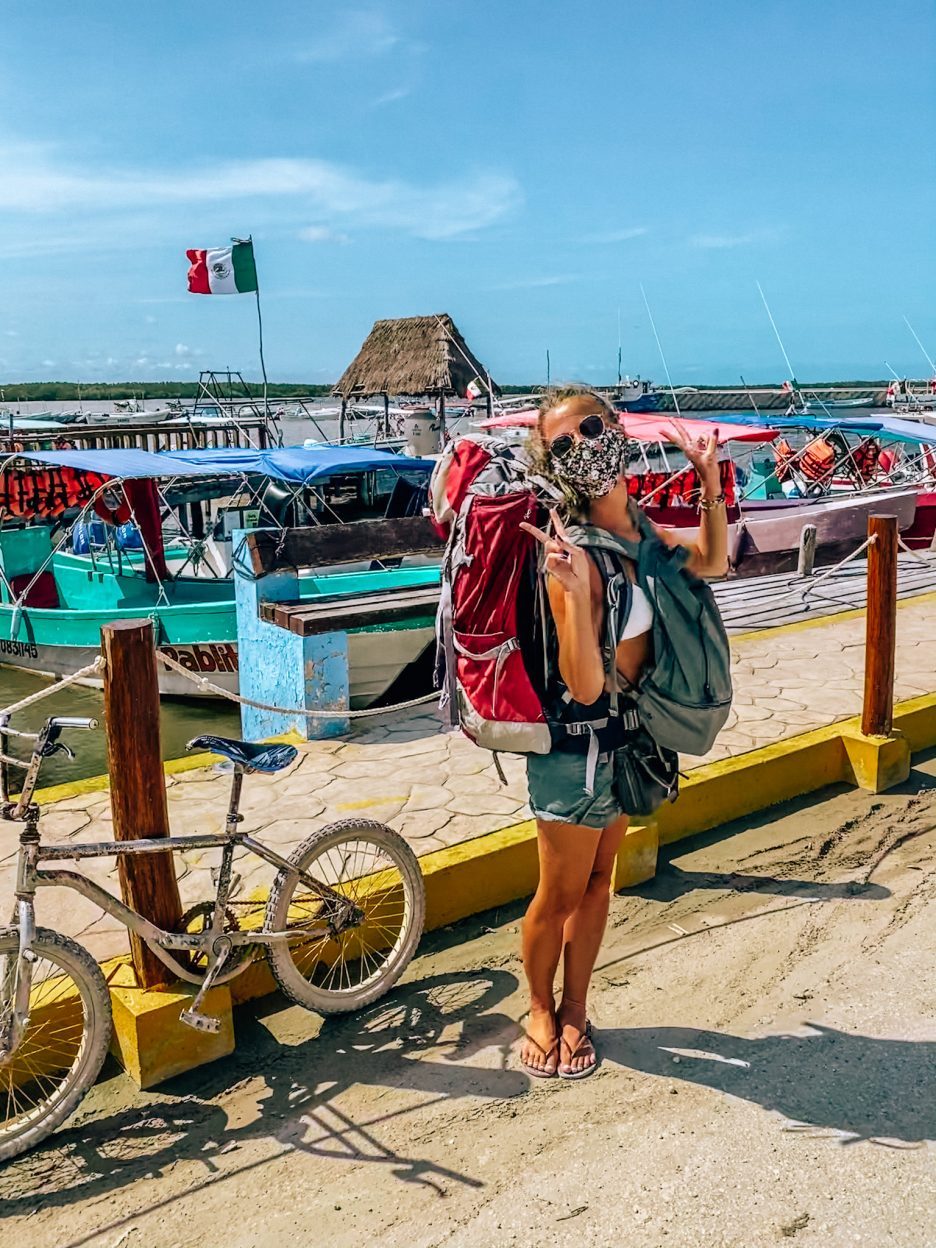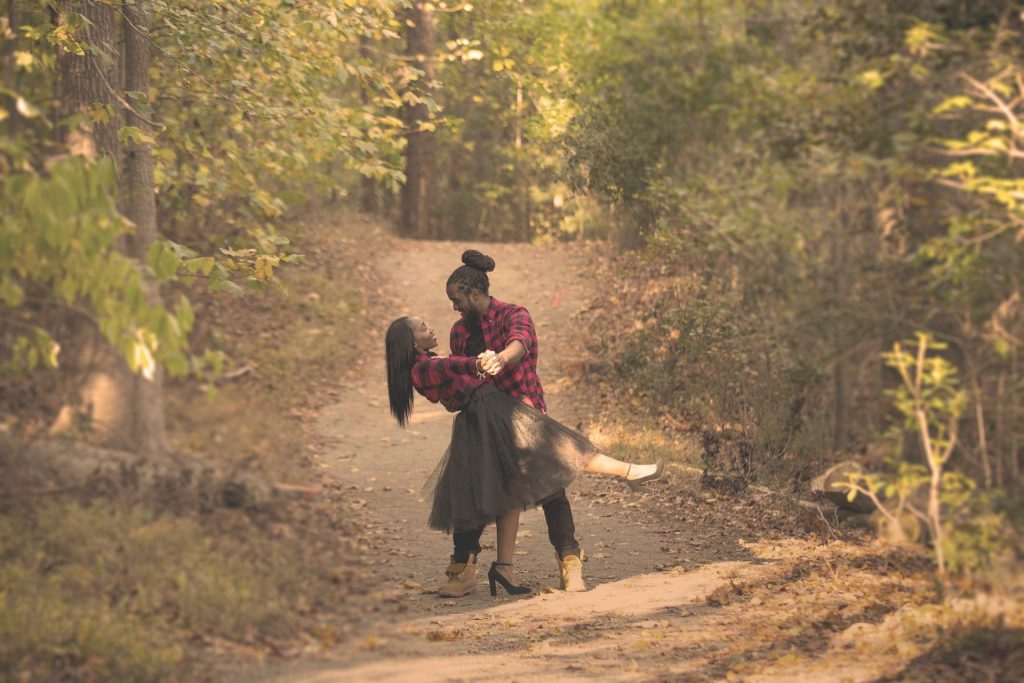Publisher’s Note: We respect that travel is a personal choice and that some depend on travel for their livelihood. Before embarking on travel it is imperative that you monitor your health and research local government restrictions, rules, and safety measures related to COVID-19.
A global pandemic, travel bans, and now hurricanes — what else have you got for us, 2020?!
It hasn’t been an easy year for anyone, and although there is no comparison to the struggles faced by those who have dealt with the virus firsthand, the border restrictions related to COVID-19 have taken a toll on travel lovers as we are unable to roam the world like we once did.
Travel is not the same, but it is not impossible, and as someone who based her livelihood and well-being off of travel, it was time to hit the road — as safely and consciously as possible.
As a travel writer, editor, and content creator, along with owning a travel business, Adventurelust, my lifestyle has taken me around the globe to wherever calls my soul and has strong Wi-Fi. While many people find comfort and happiness in being home and in a stable routine, my well-being is heavily related to travel. I had an incredible summer with friends, family, and exploring my home of Canada, but as the weather turned colder and COVID-19 continues to persist, it was time for my nomadic soul to relocate once again. I understand this choice is not for everyone, but for me personally, this was really the only choice.

I am not alone in my mindset of escaping to somewhere more desirable than my dreary homeland during the winter. My destination was Tulum, Mexico, where I encountered plenty of other expats, online workers, and even vacationers who were after the same goal: happiness.
Many had been in Mexico since pre-pandemic days and had just hunkered down during the depths of quarantine. Others were like me, there for a few months because quarantining back at our parents’ house just wasn’t serving our soul. Others were there on vacation, an escape from reality back home. Each of us had our reasons, but there was no shortage of us. I had never visited Tulum and couldn’t even imagine how crowded it must be during the pre-COVID era because there is certainly a fair share of people there now!
Of course, the draws are obvious — Mexico is a quick flight for many North Americans, and is a beautiful, tropical, warm destination where the waters are blue and the tequila is abundant. If that weren’t enough, borders are fully open with no restrictions — no quarantine upon arrival, no COVID-19 test results, no countries are banned. While there is undeniably a more free-spirited vibe here than in the suburbs of British Columbia where I have been for the past six months, there are still masks being worn, sanitizer and temperature checks at most entrances, and social distancing measures in place.
As I arrived in Tulum, Canada felt worlds away. The beach is absolutely stunning, there is life on the streets, the local atmosphere is buzzing, the food and drinks scene is delectable, with tons of delicious and trendy cafes, restaurants, and bars. While my family and friends back home (love you guys!) are bundling up for Canadian winter, my daily attire here consists of flip flops, a bathing suit, and a light cover-up. It’s too hot and humid for a T-shirt let alone a sweatshirt or jacket.

But of course, it’s 2020, so my newfound bliss couldn’t last forever. A few days into arriving in Tulum, a tropical storm hit. Intense winds, horizontal rain, power outages, and debris swept across the streets. Electricity was out in town and we were left with no options for food except for one taco stand with a generator. I’d never experienced a storm like that, but that was only the prelude.
A few days later, Hurricane Delta was on its way. This was a level up from the tropical storm and I didn’t want to wait around and see just how much more serious it could get. I recruited a few friends I had met in Tulum and we set off to Bacalar, a few hours inland and south of Tulum. My only goal was to get away from the coast and out of the hurricane’s path, which was heading due north.
This time I was prepared with snacks, fully charged devices, and downloaded shows and podcasts. Better to be safe than sorry — but I didn’t need it! The storm bypassed Bacalar with only moderate winds and rain, and fleeing the hurricane turned into a nice little getaway to a place that was on my bucket list anyway.

Oh, but wait. 2020 wasn’t done yet.
I had relocated to Isla Mujeres, an island off of the coast of Cancun, beckoned by a less touristy scene, more affordable prices, and a more down-to-earth vibe compared to Tulum. This island is one of my new happy places. I stayed at Nomads Experience and then Selina Hostel, both located right on the beach, and connected with fellow travellers as we lounged in hammocks, ate tacos, and wiggled our toes in the sand. This is what I had been missing and craving so desperately for the better half of 2020.
About five days into my stay at Isla Mujeres, we caught wind that about storm was coming: Zeta. It was a tropical storm edging on hurricane status, and it was heading right for the Yucatan Peninsula.
We were assured that it wouldn’t be seriously threatening, we didn’t have to evacuate the island, and we should just charge our devices (check), stock up on snacks (still got ‘em from the last one) and stay inside once the storm hit (I’m an old pro at this by now).
Being right on the beach for the storm this time was a wild experience. We felt the winds get stronger and stronger as we progressed into the afternoon. The clouds loomed darker and darker over the ocean. Eventually, the sand was whipping at our legs and in our eyes by the gusts that swept across the entire beach. The wind was so strong I could barely stand up without being blown over (not an exaggeration!). It was time to stay inside while the power flickered once, twice, and then went out for the night. We played music on our phones in the dark, and the wind continued to roar.
That was my third and final tropical storm of the month, and I think I’ve reached my quota. I’m so grateful that none of them resulted in any serious damage, but the storm has continued on and others have not been so lucky. For me, it was an eye-opening experience to witness an ounce of the natural disasters that have been so devastating around the globe.
Just another reminder not to take life for granted and live it to the fullest, while staying as safe as we can.

Cenote diving in Tulum. Photo: @Tulum.breathtaking 
Author Kellie Paxian. Cenote diving in Tulum. Photo: @Tulum.breathtaking
Cover: Author Kellie Paxiant traveling during COVID










